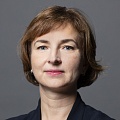As of 01.11.2022
8
Number of staff members
86
scientific publications
Name of the project: Transformation of the system of international relations in the context of shift of the technological setup
Research directions: Meta-trends, international relations, evolution of the international system, the world order, new challenges and threats, scenario analysis and forecasting, big data analysis, shift of the technological setup
Project objective: Analysis and forecasting of threats to national security of Russia in the context of increase of conflict formation potential in international relations, conditions of regional instability in the presence of a shift in technological setup
Фомин И. В., Кокарев К. П., Ананьев Б. И., Силаев Н. Ю., Сушенцов А. А., Чеков А. Д.
.Академические практики прогнозирования в международных отношениях: методологические доминанты и нерешенные проблемы // Вестник МГИМО-Университета. 2018. № 6. С. 159–193
Данилин И. В.
Развитие перспективных технологий: вызовы для научно-технологической и инновационной политики // Вестник МГИМО-Университета. 2018. № 6. С. 250–270.
Silaev N., Sushentsov A.
Strategic Security in Eurasia. Eurasia on the Edge: Managing Complexity / R. Sakwa, P. Dutkiewicz, F. Lukyanov (eds.). N.Y.: Lexington Books, 2018. Pp. 7–19.
Silaev N.
Russia and its Allies in Three Strategic Environments // Europe-Asia Studies. 2021. P. 1–22.
Fomin I., Kokarev K., Ananyev B., et al.
International studies in an unpredictable world: still avoiding the difficult problems? // European Journal of International Relations. No. 27 (1). 2021. P. 3-28
Sushentsov, A.A., Wohlforth, W.C.
The tragedy of US–Russian relations: NATO centrality and the revisionists’ spiral // International Politics. No. 57. 2020. P. 427–450
ed. by Torkunov A., Wohlforth W.C., Martynov B
History of International Relations and Russian Foreign Policy in the 20th Century (in II Volumes) // Cambridge Scholars Publishing, 2021.
Silaev N.Y.
А Test of Russian Geopolitics: Russia's Foreign Policy in the Perspective of Geopolitical Theories // Polis. Political Studies. 1(1). 2021. P. 125-141.
Bolgova I.V.
Playing Russia Wisely? The Institutional Leverage of Smaller States in the EAEU // Europe-Asia Studies. 73 (10). 2021. P. 1908-1936.
Istomin, I.A., Sushentsov A.A., Neklyudov N.N.
Conceptualizing the Crisis: The Debate between Rationalists and Skeptics // Russia in Global Affairs. 20 (4). 2022. https://doi.org/10.31278/1810-6374-2022-20-4-37-42.
|
Hosting organization
|
Field of studies
|
City
|
Invited researcher
|
Time span of the project
|
|---|





